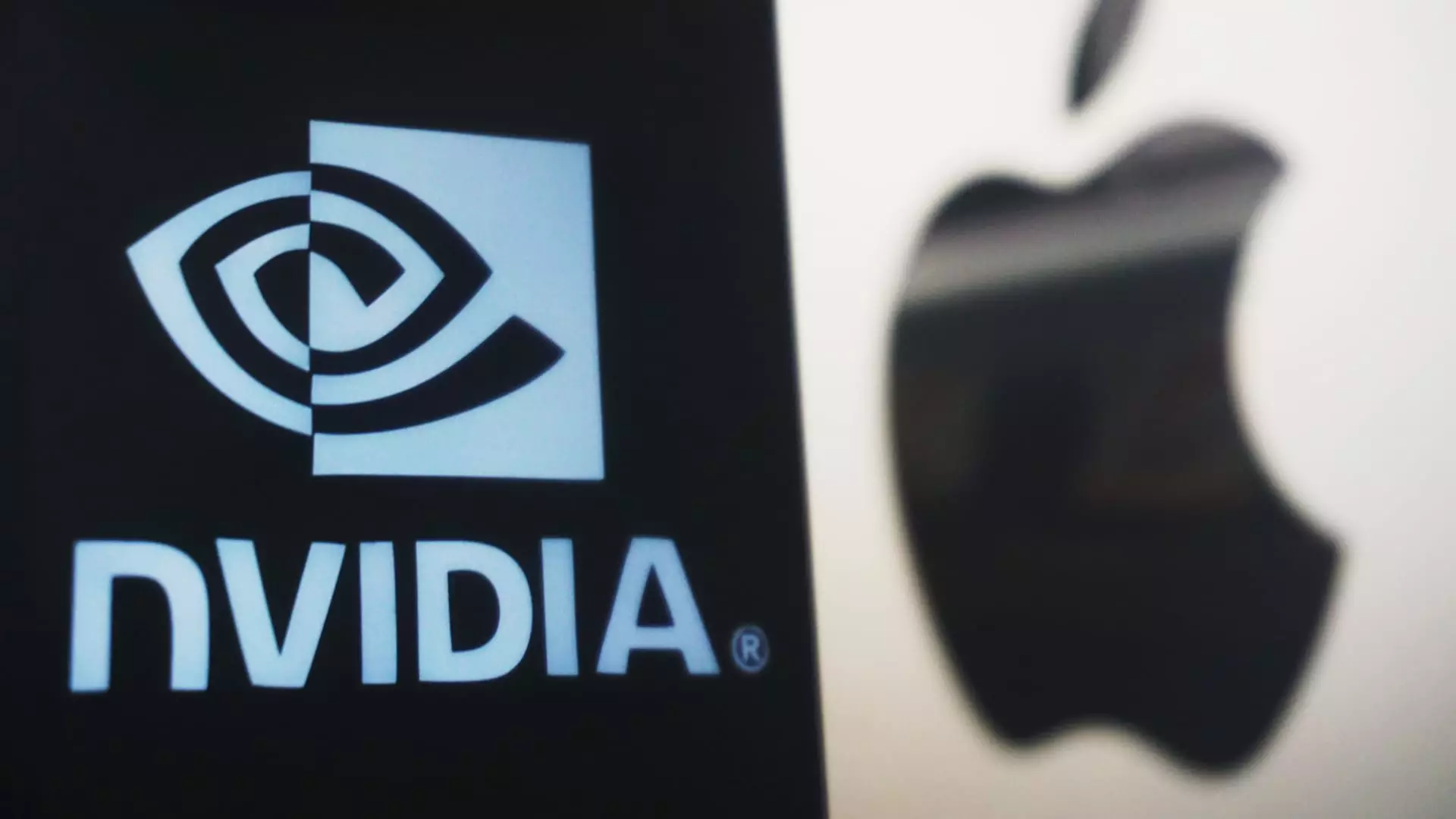In an unexpected yet welcome development, global technology and chip stocks experienced a significant rally following the announcement of a temporary pause in tariffs between the United States and China. This hiatus comes at a pivotal moment for the technology sector, which has been grappling with ongoing trade tensions that have threatened to disrupt supply chains and negatively impact major corporations. The agreement reached over the weekend aimed to ease some of the economic pressures exerted by the tariffs imposed on a myriad of goods of both nations. Investors reacted cautiously but optimistically to this development, triggering a ripple effect across various tech-related stocks.
The potential for new trade dynamics creates an air of enthusiasm among investors who are eager to see which companies will emerge as winners in this recovering landscape. It is essential to recognize that technology firms, specifically those involved in semiconductor production and smartphone manufacturing, have been disproportionately affected by trade disputes. The very fabric of these industries relies on stable and efficient supply chains; thus, any news suggesting a thaw in relations is bound to elicit a positive response in the market.
Tech Giants Experience a Boost
Key players in the chip manufacturing industry, such as Nvidia and AMD, saw substantial gains, each climbing approximately 4% and 5%, respectively, in premarket trading. Despite Nvidia’s lingering restrictions on chip shipments to China, the company’s stock exhibited resilience, indicating a broader market sentiment willing to overlook temporary setbacks. Similarly, other crucial players like Broadcom and Qualcomm followed suit with approximately 5% increases, suggesting that investors see potential upside as negotiations progress.
Marvell Technology, which had recently postponed its investor day due to macroeconomic uncertainties, saw its stock surge by 7.5%, showcasing investor enthusiasm for semiconductor giants. Moreover, Taiwan Semiconductor Manufacturing Co., crucial for chip production on a global scale, experienced a nearly 4% rise in its U.S.-listed shares. This trend encapsulates the broader understanding among traders that as tensions ease, so does the risk surrounding semiconductor supplies.
The sentiment wasn’t isolated to U.S.-listed firms. European stocks, particularly those deeply integrated into the semiconductor ecosystem like ASML and Infineon, also enjoyed significant rises, reaffirming the international stakes tied to this unexpected tariff ceasefire.
Apple and Amazon: The Big Players Adjusting to Change
The implications of this temporary truce extend to some of the largest tech entities, like Apple and Amazon, which have taken significant hits from the tariffs. Apple has voiced concerns about increased costs due to tariffs, estimating an impact of approximately $900 million in the current quarter. However, following the tariff pause, Apple shares leaped upwards by over 6%. This segment of the market illustrates the resilience of established tech giants to adapt, even amid uncertainty.
Amazon, which relies on a plethora of Chinese products for its vast marketplace, also reported an 8% surge in its premarket trading. The company’s performance serves as a reflection of the interconnectivity of global supply chains and the consequences of trade policies on consumers and sellers alike. As tariffs are paused and discussions continue, the e-commerce sector is likely to thrive once again, proving the cyclical nature of economic policy.
Analysts Optimistic About the Future
Market analysts are beginning to draw optimistic projections regarding the future of tech stocks. Some, like Daniel Ives of Wedbush Securities, express that the current easing of tensions could pave the way for the market and tech stocks to reach new heights by 2025. This sentiment is a powerful motivator for investors, suggesting that the trade negotiations could elevate stock prices, fueling growth throughout the financial sector.
There is an undeniable excitement as stakeholders contemplate the next steps in the ongoing trade discussions. The apparent willingness of both nations to engage in diplomacy offers hope for a more stable tech environment. As the market awaits further developments, the attention will presumably shift towards how individual companies will position themselves to capitalize on a potentially favorable trading atmosphere. Just as the tech sector has shown remarkable resiliency in the past, it appears poised for another significant leap forward, buoyed by the optimism surrounding this most recent agreement.

